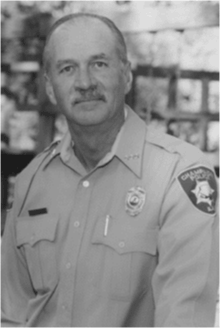The Harvard Family Research Project separated from the Harvard Graduate School of Education to become the Global Family Research Project as of January 1, 2017. It is no longer affiliated with Harvard University.
Volume VIII, Number 3, Winter 2002
Issue Topic: Public Communications Campaigns and Evaluation
Beyond Basic Training
Keeping It Local
Julie Parente of the statewide child advocacy organization, Voices for Illinois Children, describes a component of their “ground strategy” for effectively communicating campaign messages.
In 2001, Voices for Illinois Children implemented a statewide public awareness campaign called Start Early: Learning Begins at Birth, with the aim of increasing awareness of the crucial learning that occurs in years birth to three. The campaign used a number of “high-tech” communication features, such as paid cable and network television ads (including one that featured two “talking” babies), and radio, newspaper, and billboard advertising.
Equally important to the campaign, however, was the campaign’s low-tech “ground strategy.” This strategy used a corps of local spokespeople trained on the campaign’s core messages to increase the campaign’s reach and influence with audiences in communities throughout the state. The basic premise was that audiences would pay more attention to the campaign’s messages if they came from people they already knew and trusted.
Training Local Spokespeople
The process to establish the corps of local spokespeople began with a pre-campaign statewide survey that identified categories of spokespeople registered Illinois voters considered to be credible on early childhood issues: police chiefs, pediatricians, kindergarten teachers, and business leaders. Voices for Illinois Children then tapped those types of individuals to become local spokespeople and receive media training.
Voices’ statewide partners, such as the teachers’ union, the state chapter of the American Academy of Pediatricians, and the advocacy organization, Fight Crime: Invest in Kids Illinois, helped identify 40 spokespeople. Voices arranged trainings with these spokespeople in six major Illinois media markets, including Chicago, where the TV ads were going to air. The trainings were purposely small (six to ten people) and short, lasting no more than 90 minutes. They were held in conference rooms, classrooms, and living rooms, and scheduled either at the beginning or end of the workday to maximize attendance.
Pointers for Training Local Spokespeople • Look for uncommon supporters. People trust authority figures—law enforcement, medical personnel, teachers—and find them credible. Many may already be experienced in talking to the media. |
Spokespeople learned about new brain research that demonstrates the importance of quality early childhood education through a short PowerPoint presentation. They watched one of the campaign’s TV ads and learned about Voices’ key messages outlined in a one-page message memo.
After some quick tips on how to deal with the media (which many spokespeople were already savvy about), the trainer asked each participant a question so they could practice their responses. For example, “You’re a police chief. Why do you care about child care?” and “What can people in our community do to help improve early childhood education?”
The spokespeople also posed for photographs that were then used in print ads in their hometown newspapers where they would be recognized. One ad read: “Why would a bank president support quality child care? Because I know that good early learning environments always pay off. And that’s a good investment in our kids and our state.” (See below for another example.)
|
||||||
| An ad from Voices for Illinois Children’s 2001 public awareness campaign featuring a local spokesperson. |
Spokespeople in Action
Spokespeople participated in the rollout of the early childhood ad campaign in several ways. Some spoke at a news conference in the state capital and were interviewed by newspaper, radio, and TV reporters. All spokespeople’s names were included in media kits that were mailed to reporters across Illinois, and several were interviewed. Their names also were included in a video news release broadcast to all TV stations.
A number of articles using local sources resulted. For example, Elmhurst Police Chief John Millner was quoted as saying, “The research is so clear that if we invest in our children now, it will clearly make a difference later on. We’re tired of seeing the looks on the victims’ families’ faces when they say, ‘Why did this happen to us? Why were we victimized?’ If we look at this in the long run, maybe we won’t have to invest as much time in building prisons, which is fine for me.”
In another article, Springfield pediatrician Dr. Raymond Castaldo said he often sees kindergarteners that teachers believe have medical problems, and noted that many of these children would have benefited from the social and learning skills taught in quality early childhood programs. “I recognize the need to go back and start earlier,” he said.
Voices’ corps of local spokespeople became a key ongoing component of the Start Early campaign. In addition to speaking with reporters, many became more involved in advocacy. Some wrote letters to the editor, talked to their lawmakers about early childhood policy, or received message training on other topics.
For more information on the Start Early campaign, see Voices’ website at voices4kids.org. The campaign’s TV ads can be viewed on the site and can be made available to other nonprofits for use as public service announcements.
Voices for Illinois Children recently joined with two partners to launch a new statewide public awareness campaign, “Early Learning Illinois: Access. Options. Opportunities.” The campaign used a voter registration drive, community meetings, and a postcard campaign to inform gubernatorial candidates that all children should be healthy, eager to learn, and ready to succeed by the time they enter school.
Julie Parente
Director of Communications
Voices for Illinois Children
208 S. LaSalle Street, Suite 1490
Chicago, IL 60604-1103
Tel: 312-516-5551
Email: jparente@voices4kids.org
Website: voices4kids.org



